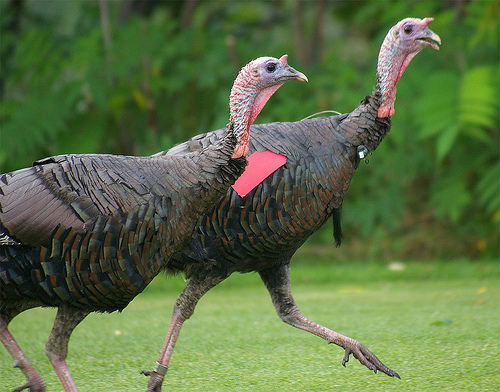
In the week ending last Friday, an eight to 16 pound hen sold at wholesale for about $1.19 a pound, and a 16 to 24 pound tom sold for about $1.17 a pound. That is well below the prior week’s price of $1.24 a pound for both, sharply higher than the $1.03 average for hens and $1.04 average for toms in 2013. The price also averages about a nickel a pound higher than the October average.
The USDA expects the U.S. turkey stock to number 235 million this year, the lowest since 1986 when production totaled about 207 million. Turkey farmers culled their flocks after the drought in 2012 as they tried to cut losses brought on by the high cost of feed. Like cattle herds, turkey flocks have gotten smaller and prices have risen.
Surprising to most of us, perhaps, is that the retail price we pay for the Thanksgiving bird has little to do with the wholesale price of turkeys. The national average retail price of turkeys for frozen turkeys last week was $0.91 a pound for hens and $0.93 a pound for toms. The price for fresh turkey was $1.44 a pound, according to the USDA. At the retail level, turkeys appear to be a loss leader.
ALSO READ: October Retail Sales Sharply Higher Nearly Across the Board
It’s Your Money, Your Future—Own It (sponsor)
Are you ahead, or behind on retirement? For families with more than $500,000 saved for retirement, finding a financial advisor who puts your interest first can be the difference, and today it’s easier than ever. SmartAsset’s free tool matches you with up to three fiduciary financial advisors who serve your area in minutes. Each advisor has been carefully vetted and must act in your best interests. Start your search now.
If you’ve saved and built a substantial nest egg for you and your family, don’t delay; get started right here and help your retirement dreams become a retirement reality.
Thank you for reading! Have some feedback for us?
Contact the 24/7 Wall St. editorial team.


